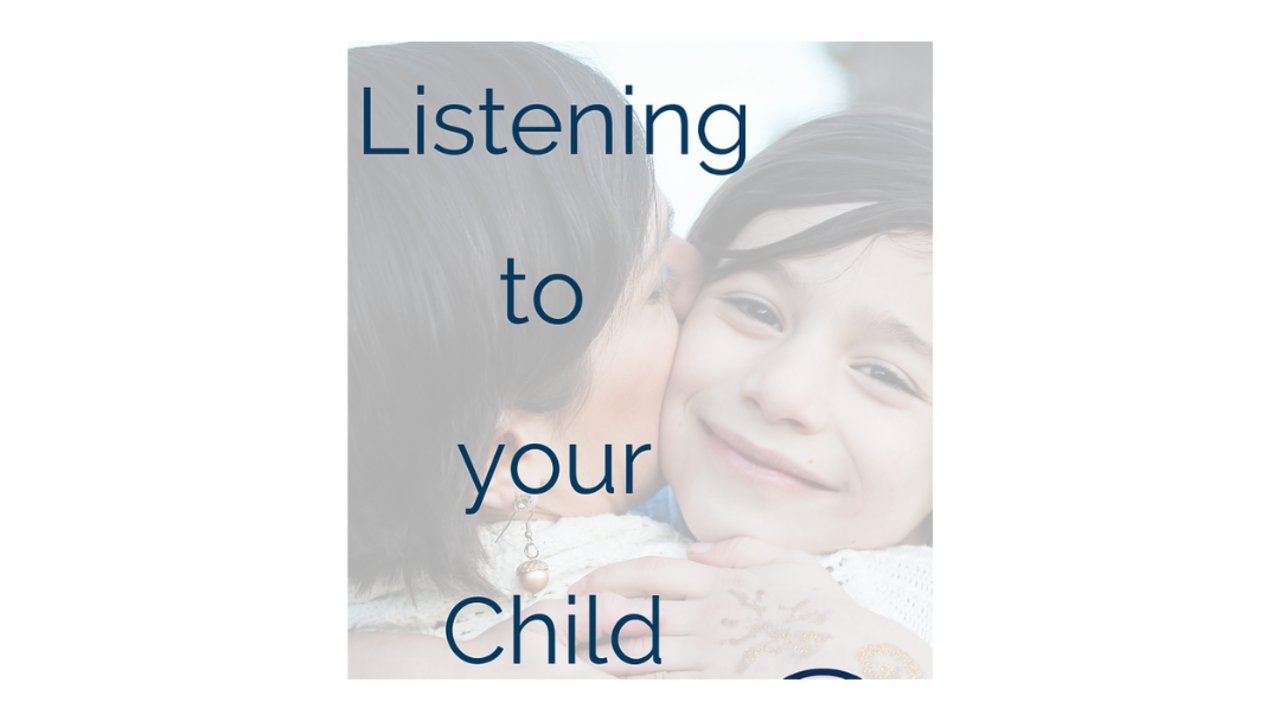Being a Good Listener: Connection before Direction
May 03, 2019
How likely is your child to come to you and share the real dirt about their life? This depends a great deal on how you respond to them when they share.

Just like our reactions to kids' misbehavior affect their future choices and emotional health, our reactions to their self-expression have big impacts too. Here are my best tips for making sure the lines of communication are open:
1) Their communication is an opportunity to show your true colors.
Kids sometime say things to see how you will react. Think of it as them testing the waters about whether they can really feel safe sharing themselves with you. If you ever feel like your kid is just pushing your buttons or trying to get a rise out of you, sometimes you're right! They are testing out some big questions: Are you going to freak out? Do you really care about the things you say you care about? Do you believe in me? When your kids says something wild or provocative, Don't freak out. Don't lecture. And don't back down from what you believe - Ask questions! Asking questions (when done well) is the best way to keep the info coming and give great answers to all that testing our kids are doing.
2) Ask questions - but do it the 'right' way.
The most important thing when it comes to questions: We are asking them out of curiosity, with no judgment or agenda. It's not to accuse or imply blame ("What do you mean you didn't turn in your homework?!?!" "Who started this?" "Why didn't you do what I asked?"). It's not to sway, pressure or try to get a specific outcome ("Are you sure you want to do that?" "Don't you think it would be better if you had...?" "Why didn't you do....?"). You're really just gathering information and giving the message that you are wide open to receive whatever your child has to share with you.
Each time you handle things in this way, you are adding a little more to your kid's trust, confidence, and safety. So when something big happens, they won't think twice about telling you about it. The way you present yourself to your kids is what establishes the likelihood of having the privilege of seeing what's really going on with your kids. While we can never force or control how open our kids are with us, we do have a lot of power over the way we show up when they're ready to share, and that is huge. Want more help in changing the communication in your home? This recording of my masterclass "3 Secrets to Raising Great Kids Without Losing Your Sanity" is a great place to start.
